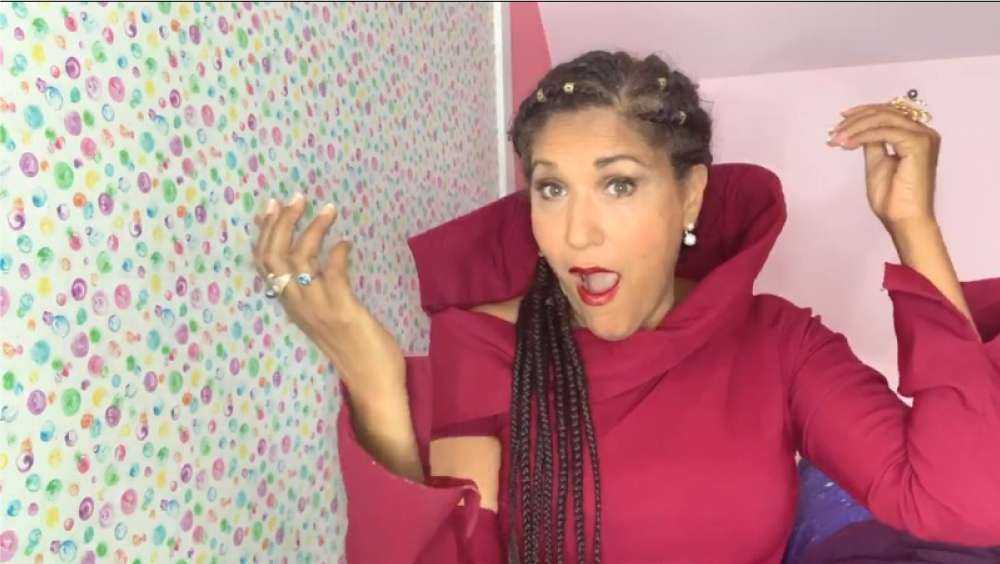on
BY JANIECE CAMPBELL
“There’s a shadow of fear looming across the world to capture our creative imagination. Now, more than ever, it’s time to decide where we place our divine attention.”
The art of acting is quite complex. Its more than just reciting memorized words with amusing inflections. It is a total out-of-body experience – one that releases you into a realm of… well, whoever you choose to be.
Jamaican-born actress Suzanne Coy is no stranger to this sentiment. For her, theatre and spirituality go hand-in-hand. Her love for the art began to grow before she realized it even existed.
Settling into Canada as the only black family in Athabasca, a small town just 145 kilometres north of Edmonton, Suzanne had copious encounters of racial discrimination. Outside of being called hateful slurs, she had experienced first-hand degradation within the school system.
“I came to this country when I was seven years old, and I had the worst patois dialect that you could ever imagine,” she says. “The teachers wanted to wrong me and call me stupid because they couldn’t understand my accent. But I was a fiery bright genius!”
As she moved on to high school, that fire refused to die. She discovered theatre, which she described as “a spiritual experience.” For Suzanne, drama awoke something within her that was much deeper than the surface.
“It was the freedom from being imprisoned by other people’s perceptions of me and how they think I should be or how I should look. It was a freedom to understand humanity. When you’re not a part of the herd, when you have the ‘ugly duckling’ experience… it’s a gift. How are you going to channel something original if you’re within the tribe?”
After winning best actress awards annually, she decided that it was time to free herself from the desert of Athabasca upon graduation. She had met a fork in the road, one with a path that could possibly change her life forever.
“I wrote to Mother Teresa, to come and work with her. I was accepted to go to Jordan, but I was also accepted to go to the National Theatre School in Montreal. To me, they were the same in a sense because I always viewed theatre as sacred. I always saw it as a way of expanding beyond stereotypes and limitations. I always saw it as both a service to the community and yourself.”
Suzanne had walked in faith and chose to attend the National Theatre School. After graduating and venturing into the industry, her resume has been far from short. With countless Canadian television credits, from ‘Heartland’ to ‘Degrassi: The Next Generation, this brilliant woman has not only shown her versatility on-camera, but she has also mastered over thirty dialects.
As a natural counselor, one who used to play the roles of both an educator and a psychiatrist to her younger sister, it’s not a surprise that her passion for teaching children is still evident today. Originally applying her studies in her capacity as a program manager for at-risk youth, for over twenty years, she has participated in community arts programs that use creativity to teach life skills.
“When kids have problems with literacy and numeracy, they often end up being the ones with other problems too. My job is to recognize the genius in every child and to help bring it out. That kind of individual assessment is missing in our school system. When a kid feels seen, that can change their entire life.”
Founder and CEO of her own production company, ACT from the HEART, she specializes in coaching and educating artists through entertaining transformation workshops.
“I have my own memorandum of my approach to acting, which is not to groom the ego but to grow our humility and compassion. It’s a way of experiencing walking in another person’s shoes. It’s a way to surrender to spirit. And that view may not be popular to the art form, but it’s an ancient view,” says Suzanne. ‘ACT from the HEART’ means being a conscious being who is trying to expand in receiving love, being love and serving all life.”
Already possessing a successful career thus far, Suzanne says she’s only getting started. Her upcoming endeavour is producing a new children’s web series – Mission Bonita, a sketch comedy show based on the popular book series Miss Bonita and Friends by Lisa Lallouz. The easily accessible show is set to premiere on YouTube on August 15th. Targeted towards children between the ages of 6-10, she personally wants to positively alter what kids consume on their hypnotising technologies.
“In such tumultuous times, with so many kids glued to the screens, I’m proud to be a part of a brand that’s offering a wonderful option in the vast sea of streams. Mission Bonita provides creative solutions to problem solving, while thoroughly entertaining young audiences with extraordinary characters that seamlessly move between fantasy and everyday reality. It’s a magical school bus of emotional intelligence.”
A show that strives to be inclusive and a direct reflection of the society many of us live in, it contains characters of a variety of cultural and racial backgrounds. The creative series effortlessly encompasses humour while also touching on heavier topics including divorce, racism, anger, bullying, self-esteem, and many more.
“It starts with a 17-year-old character, Miss Bonita, who has a magical message box, where she receives letters from children all over the world. They write to her about all of their problems, but she doesn’t have all the answers, she’s only 17! She invites a host of magical characters to help solve the problems, while also interactively involving the kids at home watching too.”
With the pandemic now slowly beginning to ease up day by day, COVID-19 was never a threat to the goals she aspired to accomplish. From plans of continuing to build her brand, to publishing her own poetry book, Suzanne Coy is taking this ‘away’ time as a blessing in disguise.
“I think there’s a great opportunity here with COVID. This is the time to make a spiritual choice on whether we’re going to stay entangled with fear, or are we going to ascend and claim this time as our own golden age to anchor infinite creativity,” she says. “It’s time to let go of the past and have the gratitude that every day we’re being blessed and guided.”
Stay in the loop with exclusive news, stories, and insights—delivered straight to your inbox. No fluff, just real content that matters. Sign up today!













